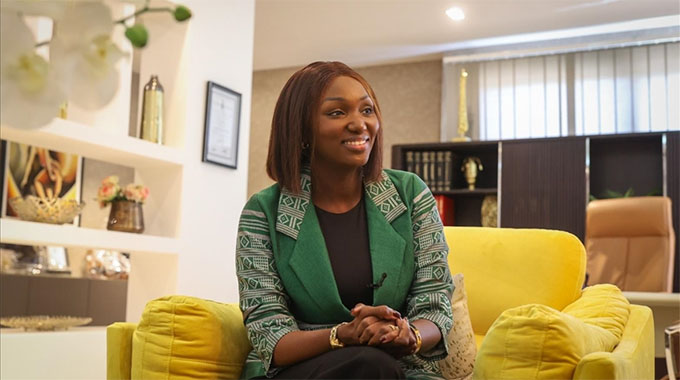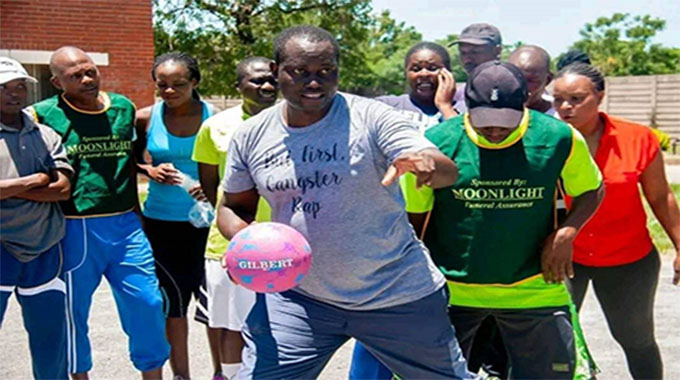Celebrating Independence through women empowerment

Ruth Butaumocho-African Agenda
Throughout history, women have often been pushed to the side-lines in politics.
Often the reason has never been about their capabilities, but it has been because of existing structural issues of patriarchy that have often made it difficult for women to ascend to power,.
From earning the right to vote in democracies to holding office and becoming national leaders, women have fought their way to the stage in a largely male-dominated sphere.
Introspecting on how women struggle to get into political governance architecture, Vigdis Finnbogadottir, who became the world’s first elected woman president in 1980, leading Iceland, once said although the world was not keen on creating equal opportunities for women to lead, they were as good as men, and in “a better position to serve the world.”
Finnbogadottir’s words are not merely elaborate, but are sustained by several global and regional events which have shown women’s leadership skills and bravery in times of turmoil, dissent and upheavals.
It is a fact that women across the world have been instrumental in shaping communities through their involvement in social change, sustainable development, not forgetting the robust roles they played during the liberation struggle at different times in their lives.
Some of Africa’s greatest matriarchs, queens and freedom fighters among them Yaa Asantewa from Ghana, Angolan Mbande Nzinga, Nandi kaBhebhe eLangeni – mother to Shaka Zulu, Madam Yoko of Sierra Leone and Mbuya Nehanda is a clear testimony that women have always played pivotal roles in their communities.
As Zimbabwe celebrates its 44th independence in a few weeks’ time, there is need to introspect on the crucial role women played in the liberation struggle and in the current political dispensation, where they have shown to be competent, hence an avalanche of appointments that President Mnangagwa has been making in the last few years.
The appointment are not mere tokenism as many would want to believe but they are based on competency as the appointed female populace have shown strong leadership skills, a fervent passion to serve and unquestionable commitment.
Gender equality and establishing a conducive environment for women and girls seem to be on the list of the Second Republic as evidenced by a litany of initiatives taken by the Government including appointments, which are in line with the Constitution.
Touted as one of the most progressive pieces of legislations in the region on gender equality, the Zimbabwe’s constitution upholds gender equality as one of its principles. As a result, gender mainstreaming has been embedded in most Government policies as a critical strategy for the promotion of gender equality and women empowerment.
History was made recently when Zimbabwe Anti-Corruption Commission (Zacc) chair and former High Court Judge, Justice Loice Matanda-Moyo added another feather to her cap after President Mnangagwa appointed her as the country’s first female Prosecutor-General.
The appointment of Justice Matanda-Moyo, who had been at the helm of Zacc since May 2019, came a few days after President Mnangagwa appointed Mrs Virginia Mabhiza as the country’s first female Attorney-General.
While the two might have heralded the mainstreaming of women in the judiciary, women have continued to prove their worth in the justice and legal fraternity with Justice Rita Makarau and now Justice Priscilla Chigumba ably leading the Zimbabwe Electoral Commission.
The latest addition to the appointments of capable women is that of former MDC-T Member of Parliament for Harare West, also the former Deputy Minister of Justice, Legal and Parliamentary Affairs, Jessie Majome, who was appointed the chairperson of the Zimbabwe Human Rights Commission.
Majome who was sworn yesterday was appointed together with Mr Michael Reza as the new Zimbabwe Anti-Corruption Commission (ZACC) chairperson.
Majome’s appointment is a welcome move and a reaffirmation of Government’s commitment to promote gender equality across all sectors of the economy.
A passionate activist in children and women rights, Majome has served diligently in her previous areas of appointment, exhibiting a high level of understanding of the said offices.
Her appointment does not come as a surprise for those who appreciate her ingenuity in legal matters and servant leadership.
A legal mind of repute, Majome holds a Bachelor of Laws, Post Graduate Diploma in Women’s Law, a Master of Laws in Constitutional Law, Development Law, Human Rights Law and Administrative Law.
She has wide experience in public administration as former Deputy Minister in the Ministry of Women Affairs, Gender and Community Development, and as Deputy Minister of Justice, Legal and Parliamentary Affairs among other key policy level positions.
Speaking after being sworn in by President Mnangagwa, Majome expressed her commitment to serve diligently.
“The priority areas would be to deepen the culture of human rights in Zimbabwe, anchoring firmly in our Constitution which I believe we should be proud of.
“It has a declaration of rights that is broad and deep and that compares head and shoulders and one of the best in the world, so that’s the priority that I would want there to be a connection that we remember,” she said.
It is heartening to note that the appointment are not mere tokenism, but women are being appointed to powerful offices, where they are expected to make decisions that guides the country’s trajectory on important matters.
The appointments of more women into powerful offices resonates with the Africa’s Agenda 2063 which commits to improving women’s political participation through several tenets that include good governance, democracy, and respect for human rights, justice and the rule of law.
These aspirations embed a culture of gender equality and good governance, which the Government is fervently pushing to ensure that the country does not lag behind. Such appointments are also in sync with President Mnangagwa’s mantra of “Leaving no one and no place behind”
Feedback:[email protected]








Comments